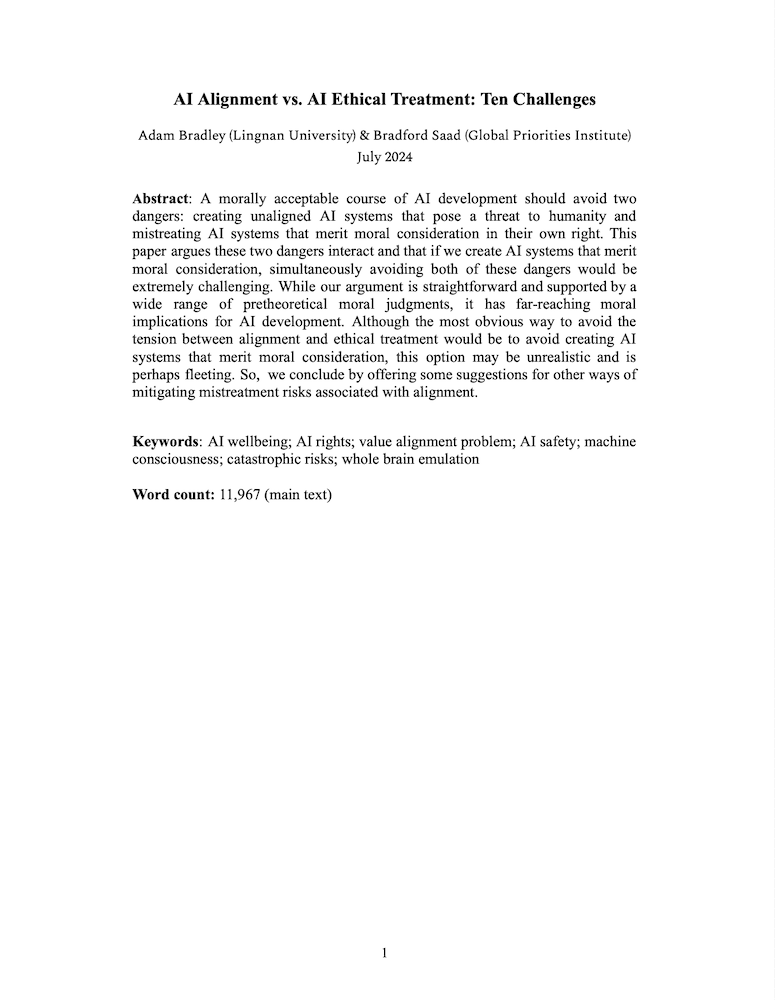AI alignment vs AI ethical treatment: Ten challenges
Adam Bradley (Lingnan University) and Bradford Saad (Global Priorities Institute, University of Oxford)
GPI Working Paper No. 19-2024
A morally acceptable course of AI development should avoid two dangers: creating unaligned AI systems that pose a threat to humanity and mistreating AI systems that merit moral consideration in their own right. This paper argues these two dangers interact and that if we create AI systems that merit moral consideration, simultaneously avoiding both of these dangers would be extremely challenging. While our argument is straightforward and supported by a wide range of pretheoretical moral judgments, it has far-reaching moral implications for AI development. Although the most obvious way to avoid the tension between alignment and ethical treatment would be to avoid creating AI systems that merit moral consideration, this option may be unrealistic and is perhaps fleeting. So, we conclude by offering some suggestions for other ways of mitigating mistreatment risks associated with alignment.
Other working papers
Will AI Avoid Exploitation? – Adam Bales (Global Priorities Institute, University of Oxford)
A simple argument suggests that we can fruitfully model advanced AI systems using expected utility theory. According to this argument, an agent will need to act as if maximising expected utility if they’re to avoid exploitation. Insofar as we should expect advanced AI to avoid exploitation, it follows that we should expected advanced AI to act as if maximising expected utility. I spell out this argument more carefully and demonstrate that it fails, but show that the manner of its failure is instructive…
Cassandra’s Curse: A second tragedy of the commons – Philippe Colo (ETH Zurich)
This paper studies why scientific forecasts regarding exceptional or rare events generally fail to trigger adequate public response. I consider a game of contribution to a public bad. Prior to the game, I assume contributors receive non-verifiable expert advice regarding uncertain damages. In addition, I assume that the expert cares only about social welfare. Under mild assumptions, I show that no information transmission can happen at equilibrium when the number of contributors…
Can an evidentialist be risk-averse? – Hayden Wilkinson (Global Priorities Institute, University of Oxford)
Two key questions of normative decision theory are: 1) whether the probabilities relevant to decision theory are evidential or causal; and 2) whether agents should be risk-neutral, and so maximise the expected value of the outcome, or instead risk-averse (or otherwise sensitive to risk). These questions are typically thought to be independent – that our answer to one bears little on our answer to the other. …

